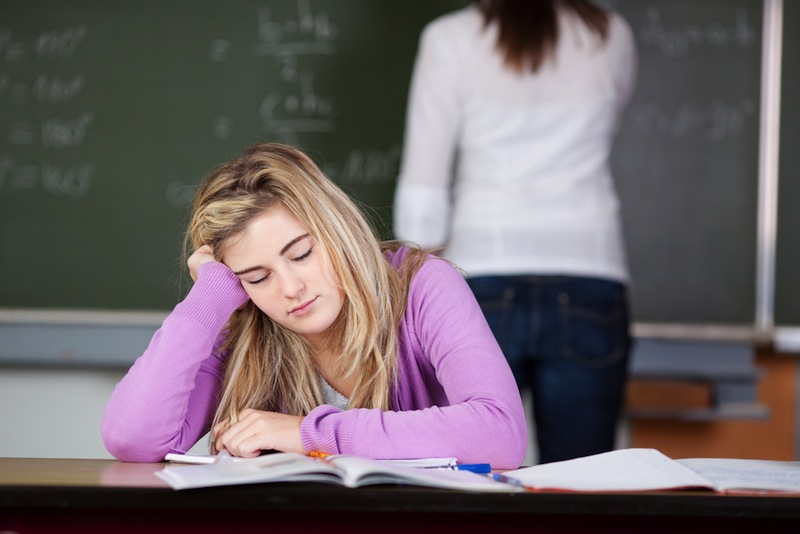Teens' Bonds with Parents Affect Their Sleep

Sleeping habits change when kids enter their teen years in part because of changing hormone levels. But a new study suggests that social ties, such as relationships with friends and parents, may play a bigger role than biology in influencing teen sleep.
Researchers analyzed information from nearly 1,000 adolescents, following them from age 12 to 15. The teens answered questions about all aspects of their lives, including their sleep habits, relationships with parents and friends, and involvement in school. Nurses also examined the teens each year of the study, to assess how quickly they were going through puberty.
During the study, teens' sleep decreased from 9.2 hour per night (on school nights) at age 12, to 7.8 hours per night at age 15. [10 Facts Every Parent Should Know About Their Teen's Brain]
Teens' social ties were much stronger predictors of changes in their sleep patterns than their stages of puberty, the researchers said.
The findings underscore the notion that, with regard to sleep habits, "teens' lives, in their totality, matters…not just the phase of puberty," they're going through, said study researcher David Maume, a sociology professor at the University of Cincinnati.
The study is one of the first to compare biological factors with social factors in terms of their effects on teen sleep.
One of the strongest predictors of sleep habits was social ties with parents, according to the study. Teens were more likely to get adequate sleep if their parents kept close tabs on their child's activities.
Get the world’s most fascinating discoveries delivered straight to your inbox.
Teens generally slept for longer on school nights, and had fewer sleep disruptions, if their parents consistently set a bedtime. This might seem like common sense, but "maybe we need to be a reminder that parents matter in teens' lives," Maume said.
Family stressors also had an effect on sleep: teens whose parents split up reported sleeping less, and having more sleep disruptions than teens whose parents stayed together.
Sleep was also influenced by the teens' friends. Those whose friends strived to do well in school and act in socially positive ways had fewer sleep disruptions.
"These findings reinforce social science theory and research findings suggesting that health is facilitated by individuals becoming embedded in multiple networks of positive associations, with key actors in their lives," Maume wrote in the December issue of the Journal of Health and Social Behavior.
Watching more TV was actually linked with longer sleep duration, but also with more sleep disruptions. Increasing computer use was linked with less sleep on school nights, and more sleep disruption.
The researchers were not able to include information about what time teens were required to get to school, which likely affects sleep duration. The study also lacked information on how cell phone use affects sleep, but previous research suggests that teens sleep worse when they use technology, including cell phones, at night.
Follow Rachael Rettner @RachaelRettner. FollowLiveScience @livescience, Facebook & Google+. Original article on LiveScience.

Rachael is a Live Science contributor, and was a former channel editor and senior writer for Live Science between 2010 and 2022. She has a master's degree in journalism from New York University's Science, Health and Environmental Reporting Program. She also holds a B.S. in molecular biology and an M.S. in biology from the University of California, San Diego. Her work has appeared in Scienceline, The Washington Post and Scientific American.
